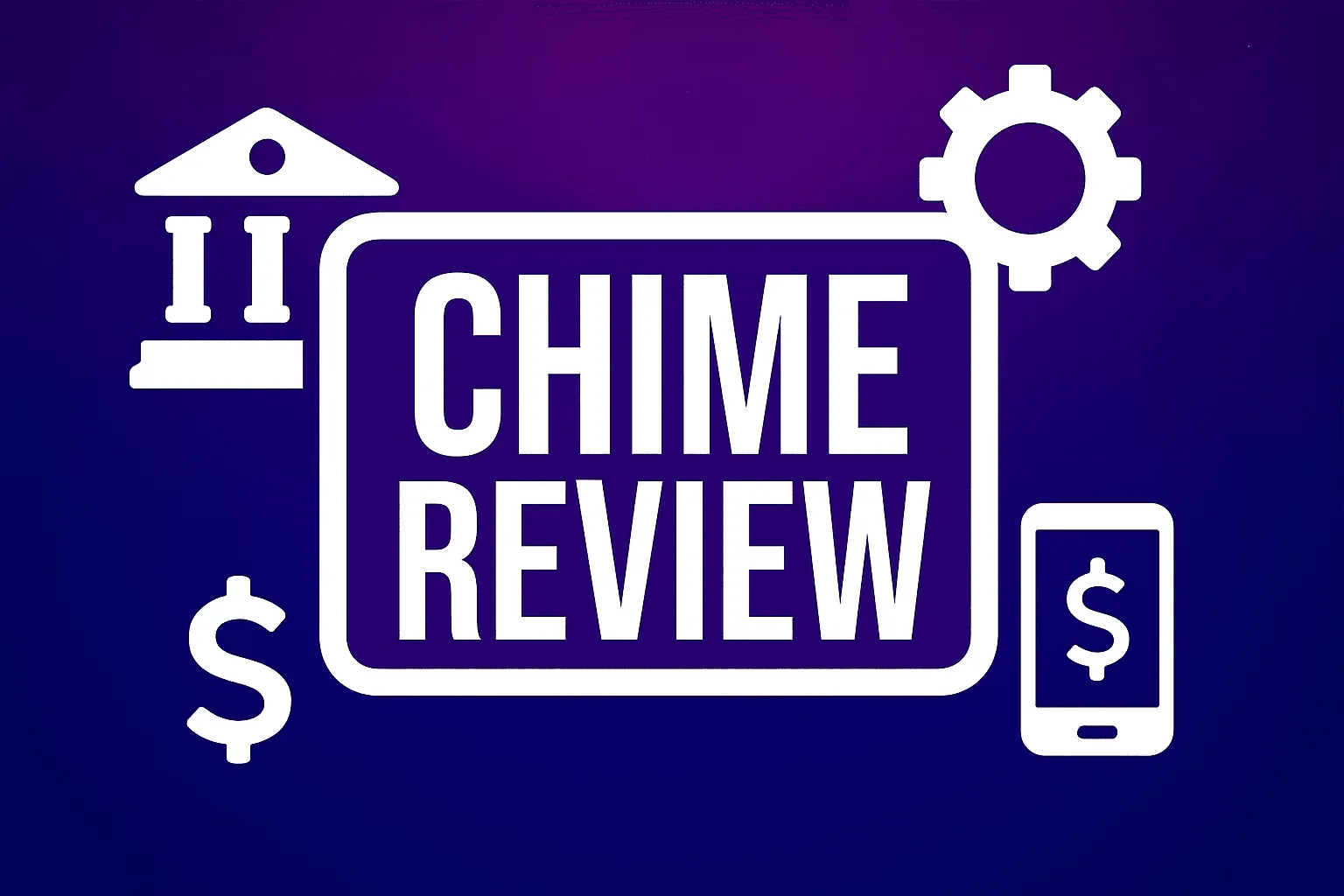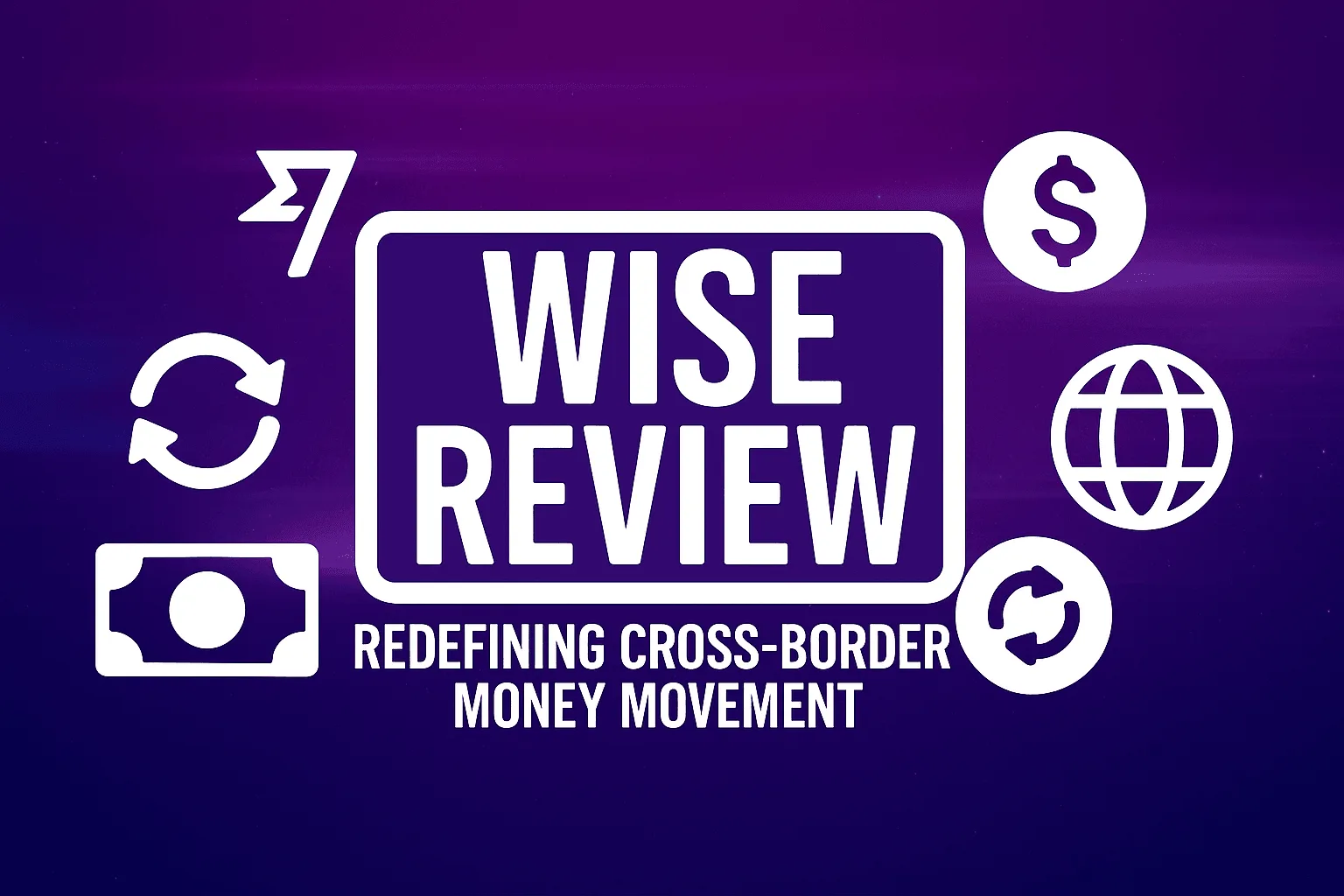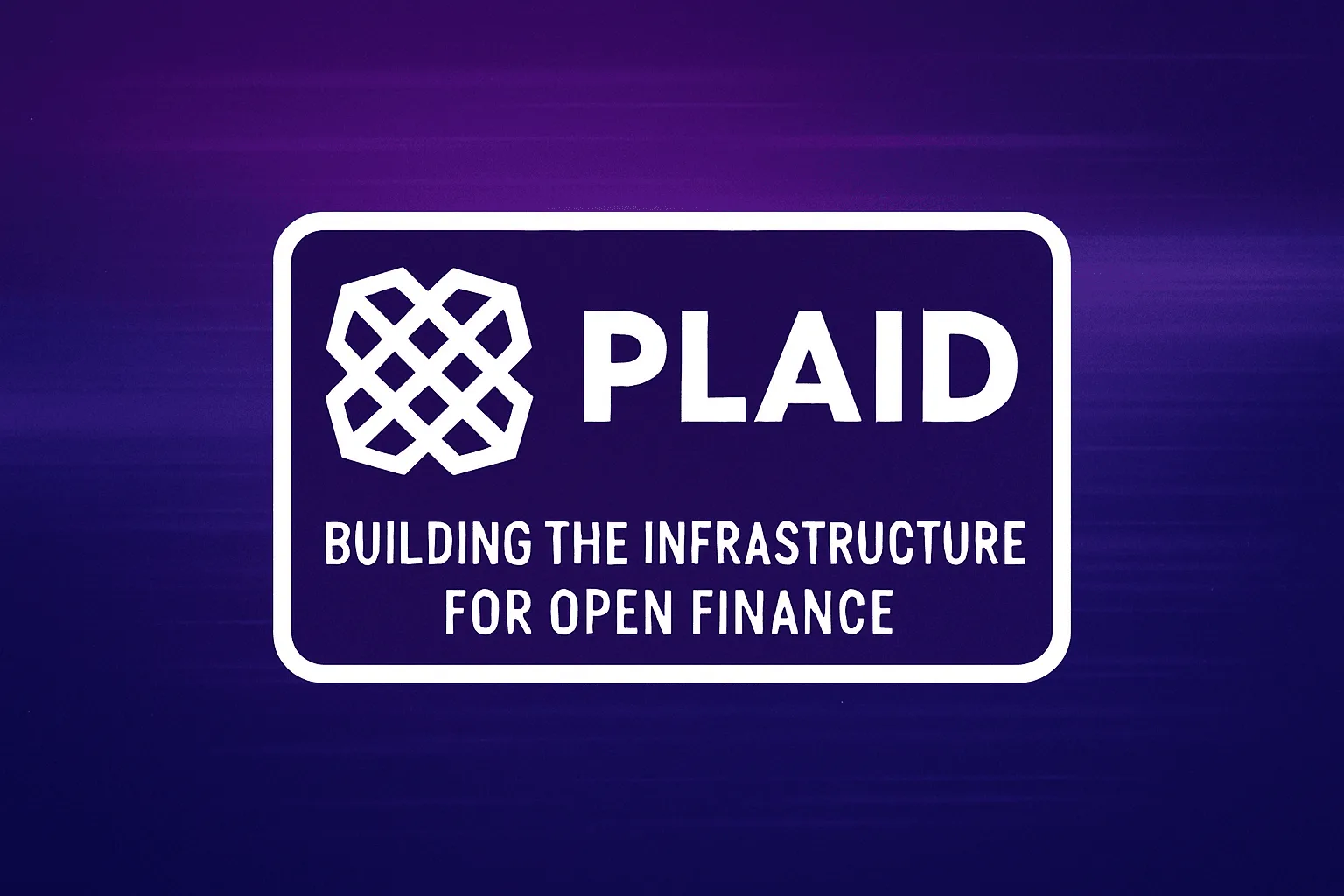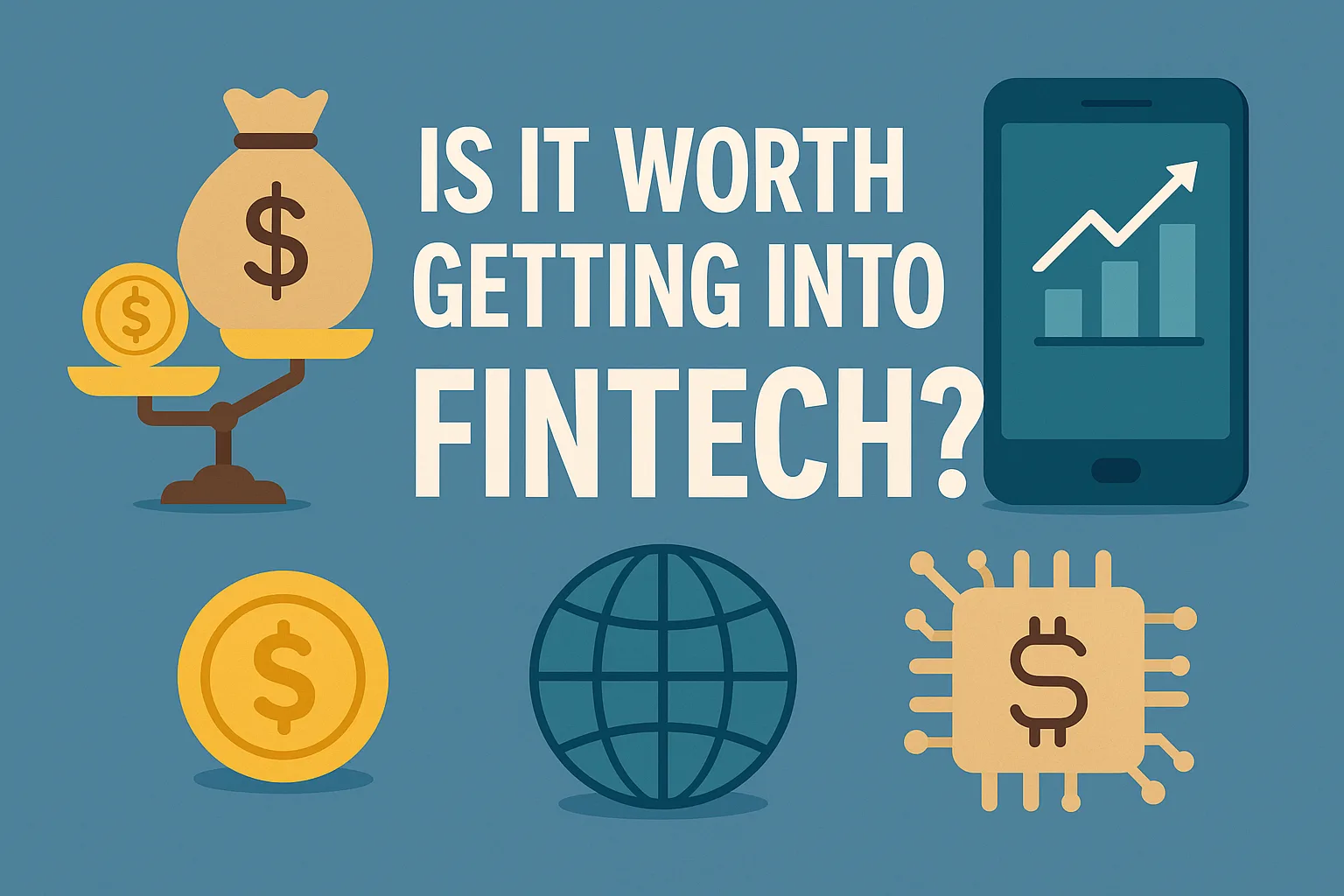In the past two decades, fintech has grown from a niche concept into a multi-trillion-dollar global industry. From mobile payments and robo-advisors to blockchain and embedded finance, the sector is radically transforming how individuals and businesses interact with money. As fintech continues to mature, many are asking: Is it worth getting into fintech, whether as a career, an entrepreneur, or an investor?
This comprehensive guide explores the fintech opportunity from multiple angles. We’ll examine market trends, career prospects, startup viability, investment returns, and what the future holds.
What Is Fintech?
Let’s recap a bit. Fintech, short for “financial technology,” refers to the use of technology to improve, automate, or disrupt financial services. This includes a wide range of verticals such as:
- Payments: Mobile wallets, real-time transfers, point-of-sale innovation
- Lending: Peer-to-peer lending, BNPL (buy now pay later), alternative credit scoring
- Banking: Digital-only banks (neobanks), embedded banking
- Investing: Robo-advisors, retail trading platforms, crypto exchanges
- Insurtech: Usage-based insurance, automated underwriting
- Personal Finance: Budgeting apps, financial wellness platforms
- RegTech and Compliance: Identity verification, KYC/AML automation
- Blockchain & Crypto: DeFi protocols, tokenization, digital assets infrastructure
Fintech companies can be startups, scaleups, or divisions of traditional financial institutions. What unites them is the pursuit of more efficient, accessible, user-friendly financial services, powered by software and data.
Why Fintech Is Booming

The fintech industry has experienced explosive growth for several reasons:
1. Technology Adoption
Smartphones, APIs, cloud computing, and AI have made it easier to deliver financial services anytime, anywhere. For many users, especially younger generations, mobile-first banking and digital payments are now default expectations.
2. Regulatory Liberalisation
Sandbox frameworks, open banking mandates (e.g., PSD2 in the EU), and financial inclusion goals have encouraged innovation and new entrants in traditionally closed financial sectors.
3. Consumer Behaviour
Millennials and Gen Z prefer apps over bank branches. They expect instant service, transparency, and personalisation. Traits that traditional banks have struggled to deliver.
4. Venture Capital Influx
Fintech has attracted massive venture capital funding. In 2021 alone, global fintech investment surpassed $130 billion, according to CB Insights. While the market cooled in 2023–24, the long-term trend remains upward.
5. Financial Inclusion
In emerging markets, fintech offers access to financial services for the unbanked and underbanked. Mobile money, microcredit, and remittance apps are improving lives and creating new market opportunities.
The Career Perspective: Is Fintech a Good Career Path?

Fintech is an attractive industry for professionals in technology, finance, marketing, compliance, and operations. Here’s why:
1. High Growth, High Impact
Fintech companies are solving real-world problems, from reducing remittance costs to improving credit access. Working in fintech offers a chance to build products that make a difference, while riding a wave of industry growth.
2. Cross-Disciplinary Opportunities
Fintech sits at the intersection of tech, finance, and regulation. Whether you’re a software developer, a product manager, a data scientist, or a regulatory expert, fintech has room for you.
- Developers work on APIs, mobile apps, fraud detection, and blockchain infrastructure.
- Product managers shape user experiences in lending, trading, or payments.
- Compliance professionals guide fintechs through evolving regulatory frameworks.
- Growth marketers drive user acquisition in a digital-first landscape.
3. Startup and Corporate Options
There’s a spectrum of employers: from seed-stage startups to unicorns like Stripe and Revolut, to innovation labs within legacy banks and Big Tech. You can find roles suited to your risk tolerance and career stage.
4. Remote and Global Roles
Fintech is borderless. Many companies are remote-first and serve global customers. This creates opportunities to work from anywhere, or to specialize in cross-border payments, compliance, or localization.
5. Competitive Compensation
Salaries in fintech are often above industry averages, especially in engineering and product roles. Early-stage employees may also receive equity or token incentives. Even in less technical roles, strong growth leads to rapid advancement.
The Entrepreneur’s Perspective: Is Now a Good Time to Start a Fintech Company?

The Case for Starting a Fintech Business
Huge Market Size
Finance is one of the largest sectors in the world, with global banking revenues exceeding $5 trillion. Even modest disruption can yield large returns.
Digital Infrastructure is Ready
APIs, cloud platforms, and fintech-as-a-service providers (like Stripe, Marqeta, or Nium) reduce the time and cost to launch. You no longer need a banking license or core banking system to build valuable fintech services.
Problem-Solving Opportunities
From SMB credit access to cross-border B2B payments, many financial pain points remain unsolved or underserved. Founders with domain expertise can build targeted, high-margin solutions.
Access to Capital and Ecosystem Support
Although venture funding has tightened, fintech founders with strong ideas still attract backing. Accelerator programs like Y Combinator, Plug and Play, or Barclays Rise provide funding, mentorship, and partnerships.
B2B and Infrastructure Growth
Much of the post-2022 focus has shifted to B2B fintech: embedded finance, APIs, risk management tools, and automation platforms. These business models often have better unit economics than B2C apps.
Risks and Challenges
- Regulatory Complexity: Navigating compliance in multiple jurisdictions is hard and expensive.
- High Competition: Many verticals (e.g., neobanks, BNPL) are saturated.
- Capital Intensity: Some fintechs (especially lending) require access to debt capital or balance sheet management.
- Trust Barrier: Consumers are cautious about new financial brands; establishing credibility is crucial.
Still, for entrepreneurs with deep financial domain expertise or a unique technical edge, fintech remains one of the most rewarding spaces to innovate in.
The Investor’s View: Is Fintech a Good Sector to Invest In?

Historical Performance
Over the past decade, fintech has been a top-performing sector in both venture capital and public markets—although recent corrections have reset valuations.
- Companies like PayPal, Square (Block), and Adyen delivered multi-fold returns to early investors.
- Fintech unicorns (e.g., Stripe, Klarna, Chime, Plaid) became household names with billion-dollar valuations.
- Fintech-focused ETFs, like ARKF or Global X Fintech ETF (FINX), saw strong growth pre-2022 before macro headwinds triggered a revaluation.
Investment Strategies
- Angel Investing: Backing early-stage startups with potential for high returns, albeit with high risk.
- Public Market Exposure: Buying stock in fintech companies or ETFs focused on payments, digital banking, and blockchain.
- Private Equity and Late-Stage Funds: For institutional investors or family offices targeting mature, revenue-generating fintechs.
Key Trends Driving Investor Interest
- Embedded finance (e.g., platforms offering banking features)
- Infrastructure-as-a-service (e.g., APIs for identity, compliance, and payments)
- RegTech and security tools
- Climate and ESG-aligned fintechs
- Cross-border B2B payments
- Wealthtech and personal finance
Despite market volatility, the secular shift from analog to digital finance continues. Smart capital allocation and a long-term view remain key to success.
What Skills or Background Do You Need to Get Into Fintech?

You don’t need a finance degree from Wall Street to succeed in fintech, but certain skills help.
Technical Roles
- Software engineering: Especially in Python, JavaScript, Go, or Solidity (for blockchain)
- API integration and architecture
- Data analytics and machine learning
- Cybersecurity and fraud detection
Non-Technical Roles
- Product management
- UX/UI design for financial apps
- Marketing and user acquisition (especially digital and performance)
- Compliance and legal knowledge (especially KYC, AML, and PSD2)
- Sales, partnerships, and B2B enterprise development
Many fintech companies value real-world problem solvers, people who understand the nuances of a particular market segment (e.g., healthcare billing, remittances, SMB finance) and can design better systems.
What Does Fintech Look Like in 2030?

Looking ahead, fintech will likely become less visible but more ubiquitous. Instead of standalone apps, financial services will be embedded into platforms, marketplaces, and tools we already use.
Key trends shaping the future include:
- Open finance and data portability
- Artificial intelligence for underwriting, planning, and advice
- Tokenized assets and decentralized finance (DeFi) infrastructure
- Digital identity and programmable payments
- Green finance and carbon-linked credit
- Greater integration between fintech and traditional financial institutions
Fintech isn’t just a vertical anymore, it’s an operating layer across industries. As such, careers and ventures in fintech will become increasingly diverse and interdisciplinary.
Real-World Examples of Fintech in Action
To fully appreciate whether fintech is worth getting into, it helps to look at concrete examples of how fintech is solving problems and reshaping industries.
1. Stripe: Simplifying Online Payments

Stripe has become one of the most successful fintech companies in history by solving one core issue: how to make online payments easy for developers. What used to take weeks of merchant account setup and legacy integrations now takes minutes with Stripe’s APIs.
Stripe’s success shows how solving a narrow pain point at the infrastructure level can lead to massive value creation. Today, it powers payments for companies like Shopify, Amazon, and Instacart, and has a valuation north of $50 billion.
2. Chime: Rethinking Consumer Banking

Chime targeted Americans frustrated with hidden fees, overdraft charges, and outdated banking interfaces. With no-fee checking, early direct deposit, and a slick mobile app, Chime amassed over 13 million customers, mostly young adults seeking better control over their money.
It’s a classic example of a fintech disrupting a slow-moving incumbent sector (retail banking) with better UX, transparent pricing, and digital-first branding.
3. Wise: Cutting Remittance Costs

Wise launched with a clear mission: make international money transfers cheaper and faster. By building their own FX infrastructure and avoiding SWIFT where possible, they undercut traditional banks and became a favorite for expats, freelancers, and global businesses.
Their story illustrates how fintech can thrive on transparency, speed, and savings, particularly in cross-border transactions.
4. Plaid: Powering Open Finance

Plaid is the infrastructure behind many of the apps you use to link your bank account, Venmo, Robinhood, Coinbase, and more. It creates the plumbing for the open finance ecosystem, allowing apps to access account data (with user permission) and build smarter services.
By abstracting away the complexity of bank integrations, Plaid enables hundreds of fintech apps to exist, proving that the back-end of finance is just as lucrative as the front-end.
How to Break Into Fintech: Practical Tips
Getting into fintech doesn’t always require starting a company or having years of experience in banking. Here’s how you can enter the space whether you’re a student, career switcher, or aspiring founder.
1. Learn the Language of Both Tech and Finance
You don’t need to be an expert in both, but having a working knowledge of how money moves, how banks work, and the basics of APIs, data privacy, and cybersecurity gives you an edge.
Recommended resources:
- Fintech Today or Fintech Blueprint newsletters
- Courses on Coursera or Udemy covering APIs, digital banking, or blockchain
- Books like Bank 4.0 by Brett King or The FINTECH Book by Susanne Chishti
2. Follow the Money

Track where venture capital is flowing using platforms like Crunchbase, PitchBook, or CB Insights. Emerging sectors like:
- AI in finance
- Real-time B2B payments
- Tokenized assets
- Financial planning tools for Gen Z
…are likely to yield job opportunities and business openings in the next 12–24 months.
3. Join a Startup or Fintech Program
Whether it’s as an intern, contractor, or early employee, joining a fintech startup can accelerate your learning and network. Look into:
- Antler, On Deck, Y Combinator, or Techstars fintech programs
- Regional hubs like London’s Level39, New York’s Fintech Innovation Lab, or Singapore’s MAS Fintech Lab
Getting your foot in the door is often easier than in traditional banking, especially if you show a passion for solving problems, not just chasing titles.
4. Build Something Small
A side project, like a simple budgeting app, a Stripe integration, or a crypto wallet prototype, can showcase your skills and curiosity. Even a blog breaking down fintech trends shows initiative.
In fintech, the best way to stand out is to demonstrate how you think, not just list credentials.
Fintech Across the World: Not Just a Silicon Valley Game

Fintech opportunities aren’t limited to the U.S. or the U.K. Emerging markets have some of the most dynamic fintech ecosystems today.
Latin America
Countries like Brazil, Mexico, and Colombia are seeing fintech adoption skyrocket. Companies like Nubank and Clip are offering millions of unbanked consumers access to credit, savings, and digital wallets.
Africa
In Kenya, M-Pesa revolutionized mobile money. Now, startups like Flutterwave and Chipper Cash are building cross-border payment networks across the continent.
Southeast Asia
Indonesia, Vietnam, and the Philippines are fertile ground for digital lending, embedded finance, and e-commerce fintech.
These markets offer huge opportunities for builders, especially those who understand local needs, languages, and regulatory frameworks.
Fintech Myths and Misconceptions

To wrap up, let’s debunk a few common myths that might keep people from exploring fintech seriously.
“Fintech is just about crypto”
Not true. While crypto is a high-profile sub-sector, fintech includes payments, lending, insurance, banking, wealth management, and much more. Crypto is one ingredient, not the whole recipe.
“Only engineers can work in fintech”
False. While technical talent is crucial, fintech companies also need people in legal, customer success, partnerships, content, compliance, and operations. Domain knowledge and curiosity matter as much as code.
“Fintech is too risky in a downturn”
Yes, funding has slowed, but so has every sector. Many fintechs are now profitable or focused on sustainable growth. Risk depends on the company and your role, not the label “fintech.”
“Fintech is only for the West”
Definitely false. Some of the most innovative fintech models are emerging in Africa, Southeast Asia, and Latin America, often leapfrogging legacy infrastructure.
Conclusion: So, Is It Worth Getting Into Fintech?

In a word: yes.
But not for everyone and not blindly.
If you’re passionate about solving real financial problems, comfortable with change, and eager to learn across disciplines, fintech offers one of the most exciting playgrounds in tech. Whether you’re looking for a high-impact career, launching a new venture, or investing in the future of finance, fintech rewards those who bring insight, empathy, and execution together.
Financial services may be centuries old, but the next decade will look nothing like the last. The tools, players, and expectations are evolving rapidly. If you want to help shape the future of how money moves, fintech is a space worth being in.
.















